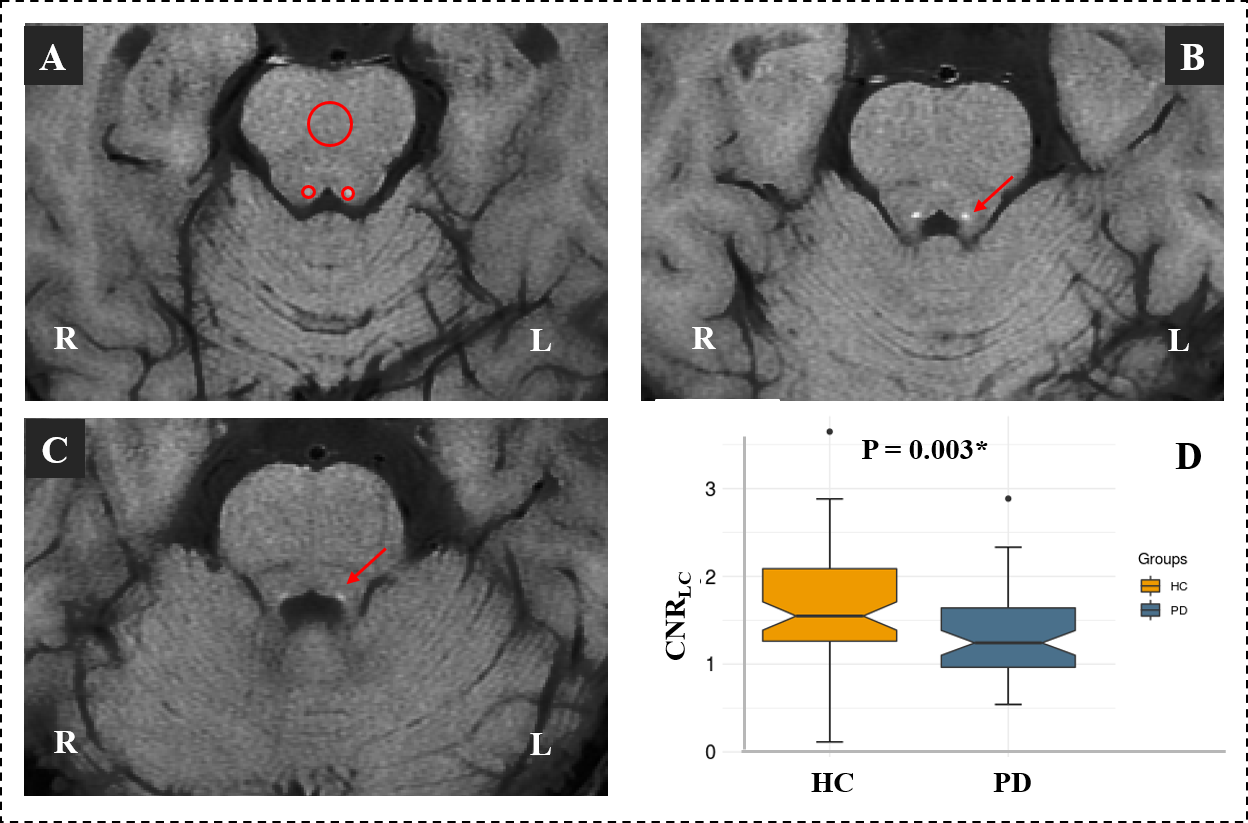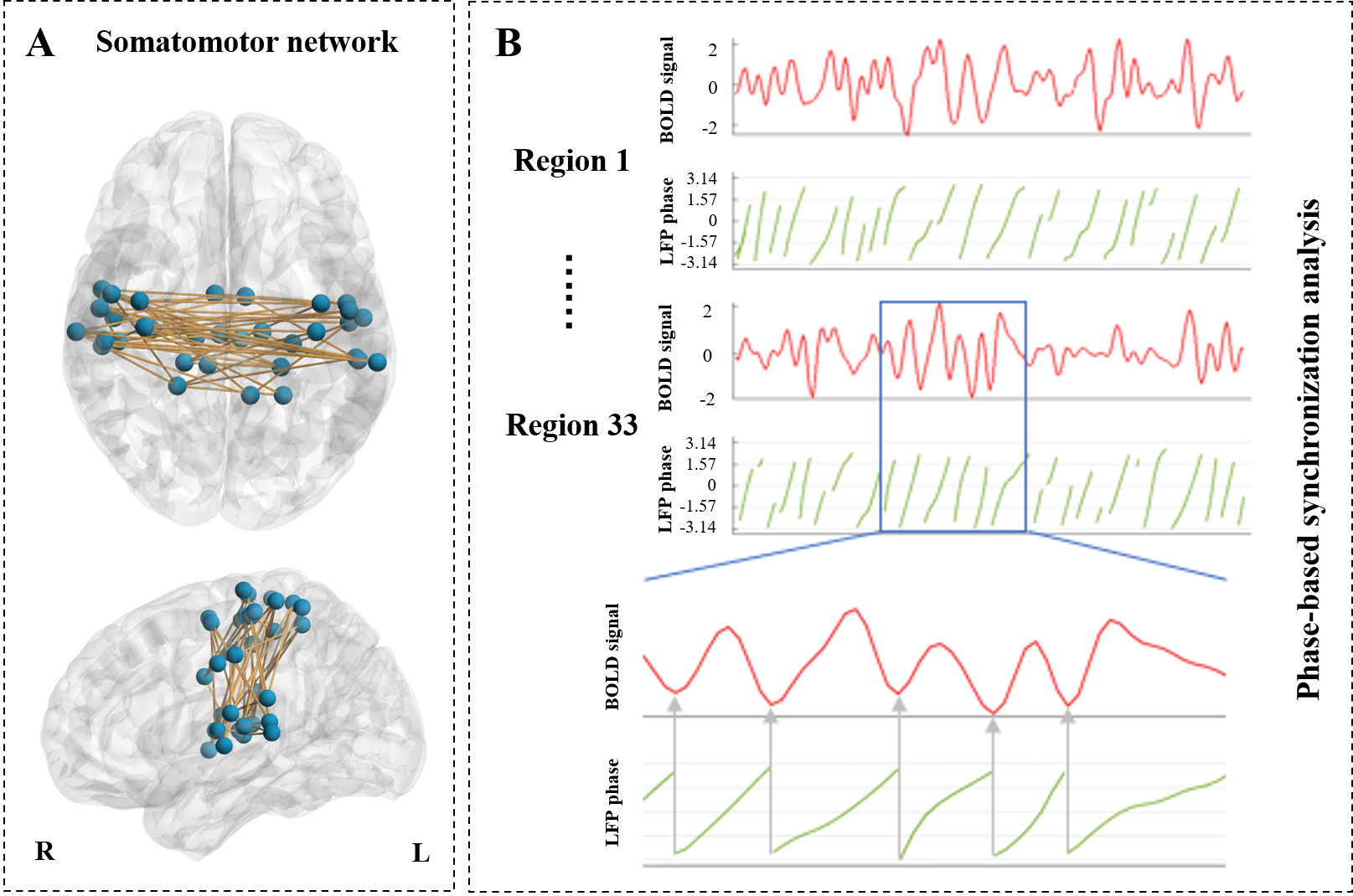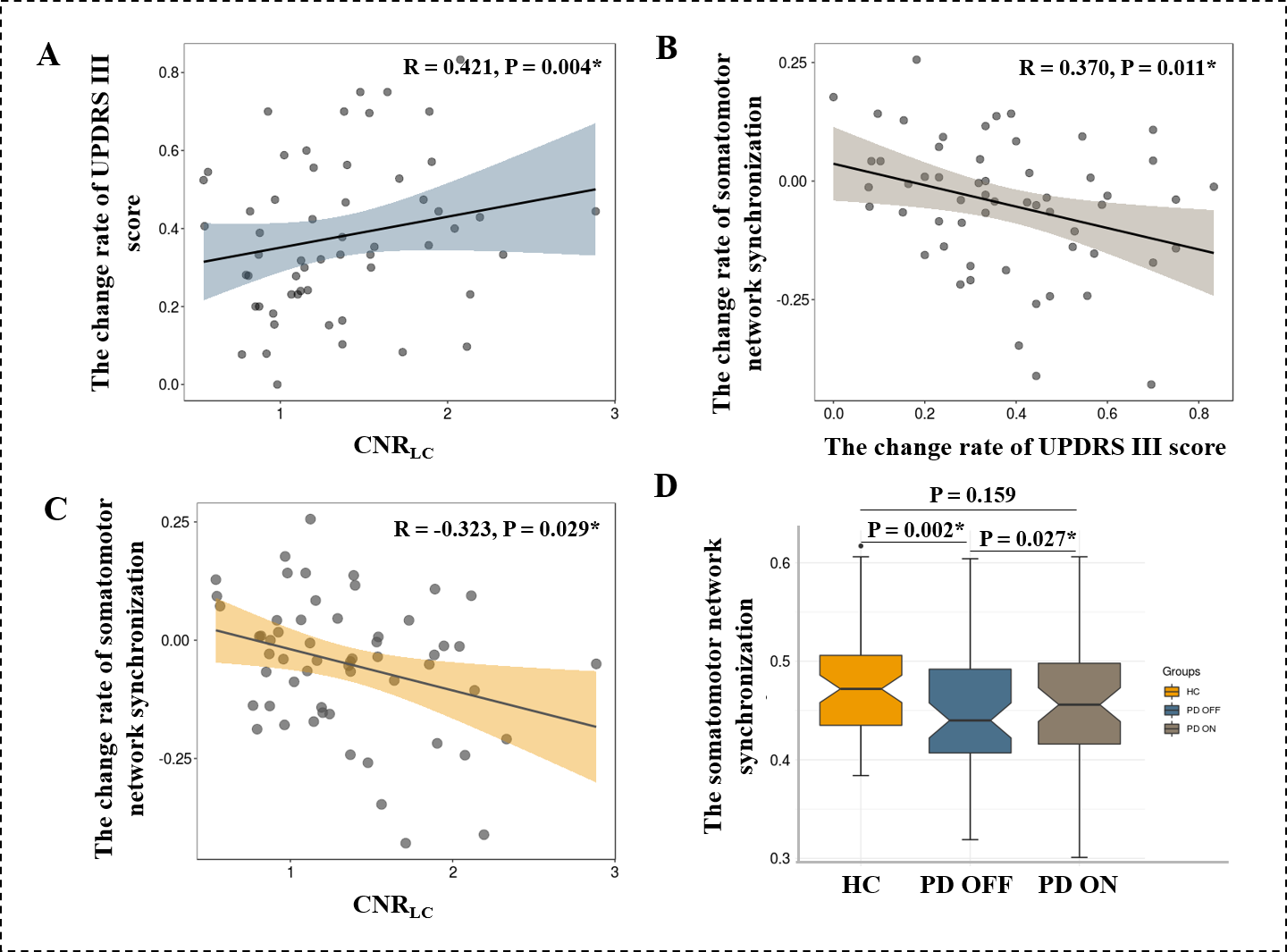Category: Parkinson's Disease: Neuroimaging
Objective: We aimed to explore the relationship between LC degeneration and levodopa responsiveness in Parkinson’s Disease (PD) patients in vivo.
Background: Widely divergent responsiveness of levodopa in PD patients is a vital clinical issue because of its relation with disease prognosis.The degeneration of locus coeruleus (LC) -norepinephrine system, which has significant interaction with the dopaminergic system, might potentially affect the responsiveness. More importantly, preliminary evidence from the PD rat model showed that severe LC-norepinephrine loss reduced levodopa treatment efficacy. Further confirmed the relationship between LC degeneration and levodopa responsiveness in vivo PD patients is of great importance for understanding the mechanism of levodopa resistance, and for stratifying PD patients into clinical trials.
A novel neuromelanin-sensitive magnetic resonance imaging (NM-MRI) provides an opportunity to quantify the LC integrity in vivo (FIG 1). The reduction of LC signal intensity in NM-MRI means the loss of noradrenergic neurons in LC.
Method: We conducted the neuromelanin sensitive magnetic resonance imaging, a good indicator for LC integrity, in 57 PD patients. Levodopa responsiveness was represented by the change rate of (1) Unified Parkinson’s Disease Rating Scale-Part III score that evaluated before and after levodopa administration; (2) and somatomotor network synchronization that calculated from resting-state functional magnetic resonance imaging before and after levodopa administration (FIG2). Then we assessed the relationship between LC integrity and the levodopa responsiveness in PD patients.
Results: We depicted a significant positive association between LC integrity and the change rate of UPDRS-III score after levodopa administration. The change rate of UPDRS-III was correlated with the synchronization of somatomotor network. Then we further confirmed this relationship in the level of brain network: LC integrity associated with the improvement of somatomotor network synchronization (FIG3).
Conclusion: We concluded that LC degeneration was an essential factor for less levodopa responsiveness. LC integrity evaluation using NM-MRI might be an alternative simple means in predicting disease prognosis and stratifying PD patients into clinical trials.
Previous submit: International society for magnetic resonance in medicine, 2021, The upcoming meeting.
To cite this abstract in AMA style:
C. Zhou, B. Zhang, M. Zhang. Locus coeruleus degeneration associated with less levodopa responsiveness in Parkinson’s Disease [abstract]. Mov Disord. 2021; 36 (suppl 1). https://www.mdsabstracts.org/abstract/locus-coeruleus-degeneration-associated-with-less-levodopa-responsiveness-in-parkinsons-disease/. Accessed February 3, 2026.« Back to MDS Virtual Congress 2021
MDS Abstracts - https://www.mdsabstracts.org/abstract/locus-coeruleus-degeneration-associated-with-less-levodopa-responsiveness-in-parkinsons-disease/



